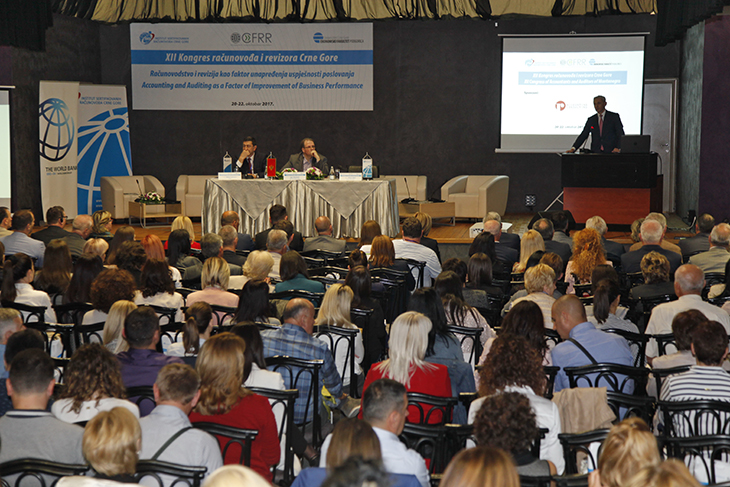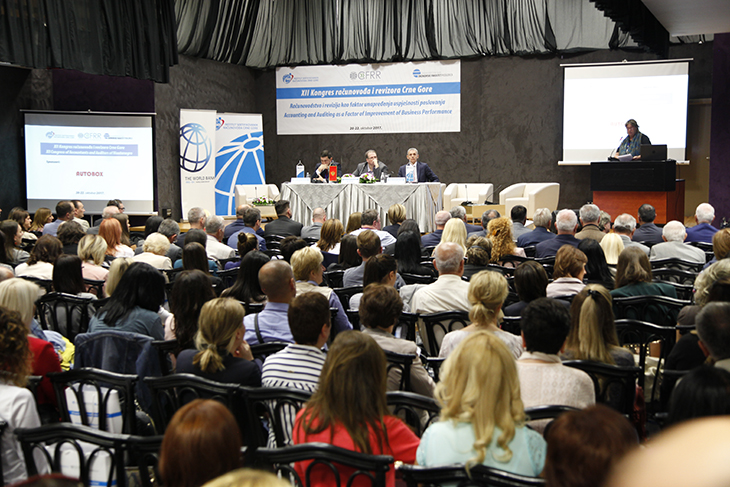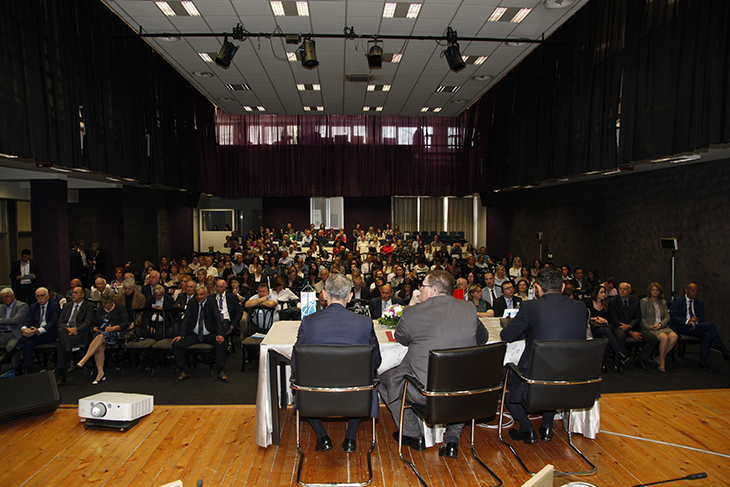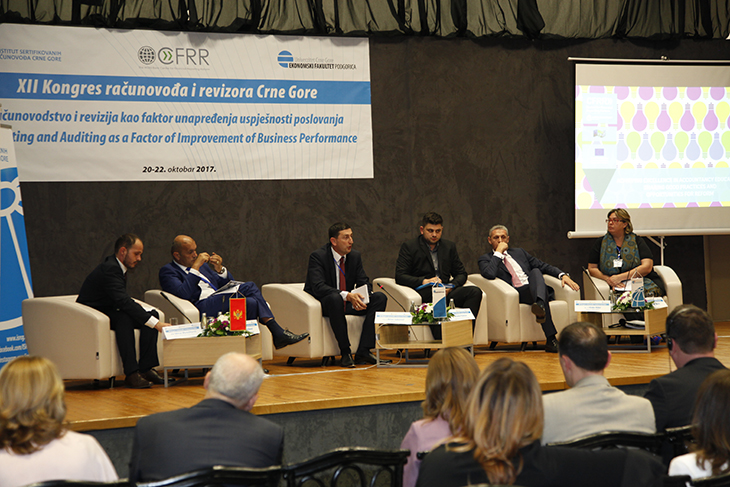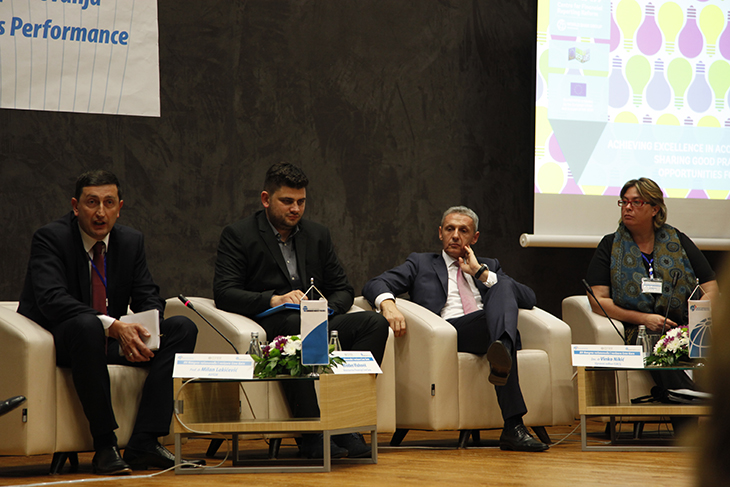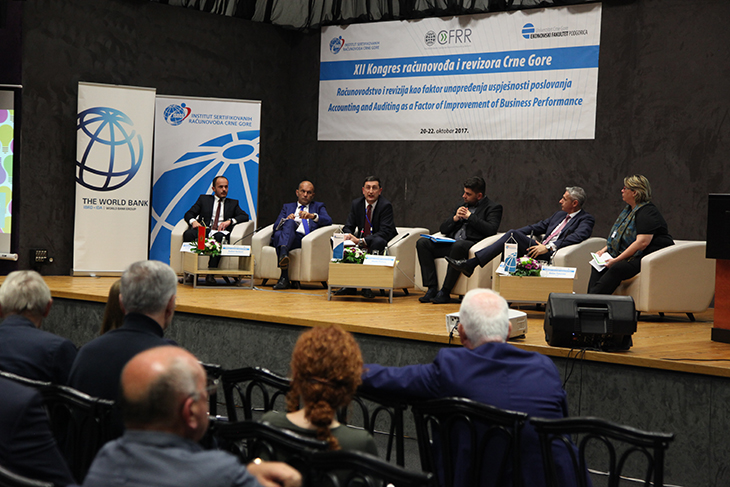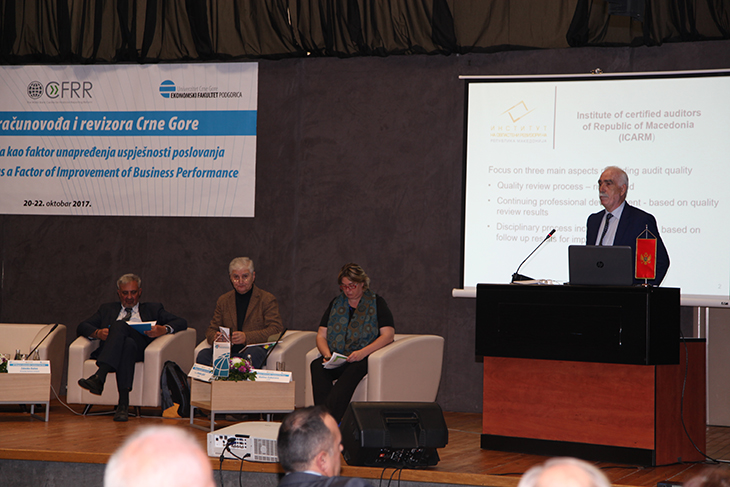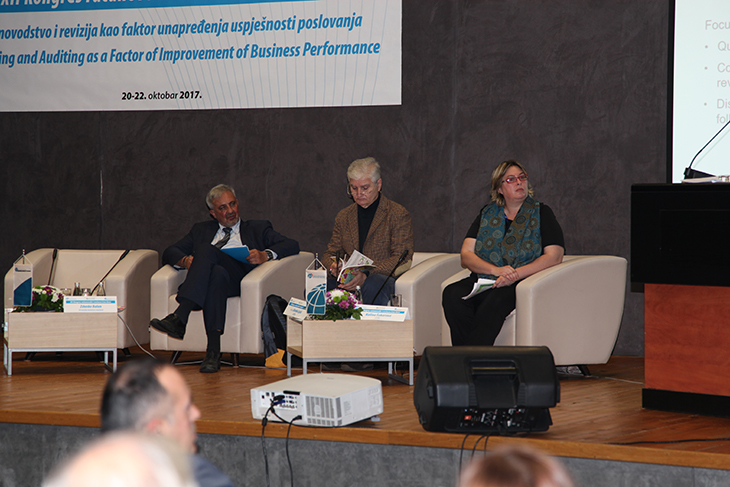Over 300 stakeholders, including policymakers, representatives from the academia, the profession, regulators, private and public sector employers and representatives from the business community, met in Becici, Montenegro on October 20, 2017 to attend a World Bank Centre for Financial Reporting Reform (CFRR) workshop focusing on accountancy education. This workshops was co-organized with the Institute of Certified Accountants of Montenegro (ICAM) and the University of Montenegro, Faculty of Economics Podgorica, on the occasion of the XII Congress of Accountants and Auditors of Montenegro – “Accounting and Auditing as a Factor for Improvement of Business Performance”.
Both the Institute of Certified Accountants of Montenegro (ICAM) and the University of Montenegro, Faculty of Economics Podgorica took part in the EU-REPARIS Regional “Accountancy Education Benchmarking Study”, and this workshop hosted panel discussions that reviewed practical approaches how in-country accountancy education reforms should be shaped. The discussions focused on solutions how the collaboration between university, professional associations and business community can be enhanced while developing relevant education programs for competent accounting and auditing workforce.
Exploring Future Accountancy Education Reforms
Following presentations covering the main challenges with International Education Standards (IES) implementation as identified by the regional EU REPARIS Accountancy Education Benchmarking Study and the specific findings for Montenegro, a panel of experts including policymakers, representatives from the accountancy profession, academia, business community and representatives from employers associations discussed further how accountancy education reform opportunities can be taken forward in Montenegro.
The outcomes of these discussions include the following:
- Continuing Professional Development (CPD), and practical experience, are important aspects of accountancy education which require further strengthening and development. Employers and the business community could support these by providing more concrete input regarding the skills required from the accountancy professionals as well as by sponsoring employee training and internship programs.
- Proactive participation of the profession is required in a number of areas involving various stakeholders, including: enhancing the cooperation with the business community and commissioning surveys to investigate skills required by employers in order to develop education programs that are relevant and well informed of the market needs.
- More emphasis on Ethics education is required at both university and professional education levels. Professional ethics is at the core of the accountancy profession and professional accountants in business and practice must act in line with the Code of Ethics so as to maintain the trust and confidence of their clients and also to protect the public interest which is fundamental to the profession.
- National Accountancy Bodies should explore ways to enhance their regional cooperation, especially in the area of education and professional development. Integrating better with other regional professional bodies would aid to accelerate the development of the accountancy profession in the Western Balkans and strengthen the regional profession voice within Europe and globally.
Focus on Audit Quality
A World Bank program for targeted assistance focusing on developing a Public Oversight and Quality Assurance system over the statutory audit function in Montenegro was recently completed. The main outputs of the targeted assistance program include: (i) developing new Laws on Accounting and Auditing that align local requirements with the EU Directives and (ii) capacity building of ICAM for admission to membership with the International Federation of Accountants (IFAC).
Both new Laws on Accounting and Auditing had been passed by December 2016. In January 2017, ICAM applied for full IFAC membership and it is expected that ICAM’s application will be approved in November 2017. As an IFAC member, ICAM is required to perform ongoing self-assessments on their compliance with each of the IFAC Statement of Membership Obligations (SMOs) and to take actions to adopt and implement the SMOs (including SMO 1: Quality Assurance), as a means to enhance quality, public trust and confidence in the accountancy profession. In this context, a panel of experts, including representatives from Macedonia and Croatia discussed this important area further and provided examples how the profession can contribute towards enhancing confidence and public trust in the quality of the external audit function and support the Quality Assurance System in Montenegro.
